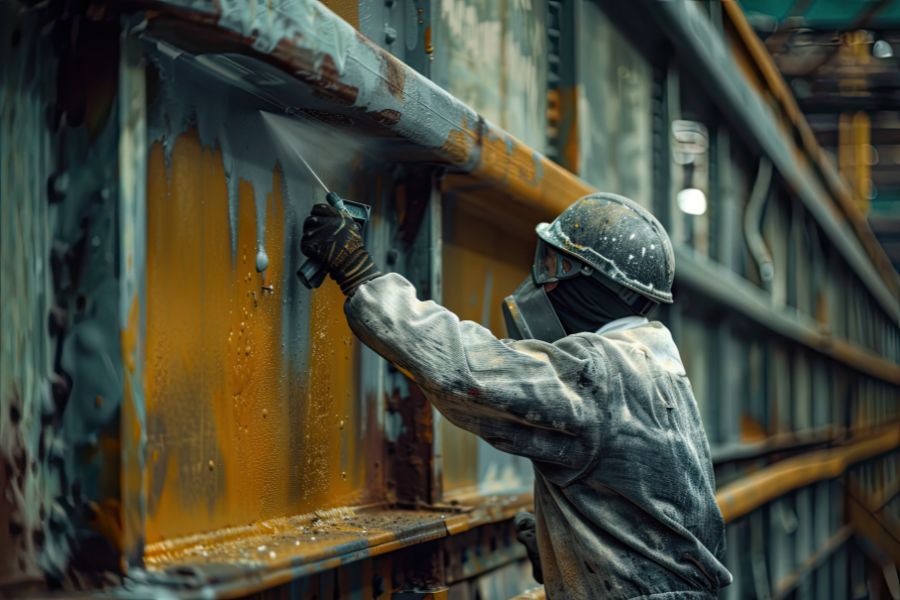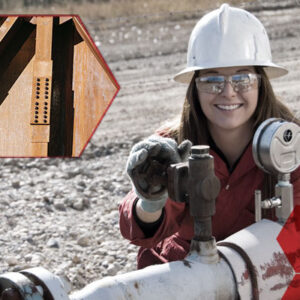Ultimate Guide to Corrosion Inspection: A Vital Step in Asset Integrity
Corrosion, often referred to as the “silent destroyer,” is a natural process that causes the gradual deterioration of materials, particularly metals, due to their interaction with environmental elements such as moisture, oxygen, chemicals, and temperature fluctuations. This phenomenon poses a significant challenge to infrastructure, industrial equipment, and machinery across various sectors. To counteract the adverse effects of corrosion and ensure the safety and longevity of assets, regular and thorough corrosion inspections are essential.
This article delves into the significance of corrosion inspection, explores its techniques, highlights its benefits, and emphasizes the value of training in corrosion protection for professionals seeking to make a meaningful impact in this field.
Understanding Corrosion and Its Widespread Impacts
Corrosion occurs when metals react chemically or electrochemically with their environment, leading to the formation of oxides, hydroxides, or other compounds that weaken the material. For example, rust on iron and steel structures is a common manifestation of corrosion.
The consequences of unchecked corrosion can be devastating. Structural failures, production downtime, environmental hazards, and substantial financial losses are just a few of the issues caused by neglecting this natural process. Industries such as oil and gas, construction, aerospace, manufacturing, and marine operations are particularly vulnerable, given the exposure of their assets to harsh and corrosive environments.
What is Corrosion Inspection?
Corrosion inspection is a systematic process of evaluating materials, structures, or equipment for signs of deterioration caused by corrosion. This process helps identify problem areas and assess the extent of damage, enabling timely intervention to prevent further degradation.
Professionals involved in corrosion inspection utilize specialized tools, advanced techniques, and a deep understanding of corrosion mechanisms to ensure accurate assessments. The insights gained from these inspections inform maintenance strategies and contribute to extending the operational life of critical assets.
Key Techniques Used in Corrosion Inspection
Corrosion inspection involves a combination of traditional and advanced methods tailored to the specific needs of the asset and its operational environment. Here are some of the widely used techniques:
Visual Inspection
Visual inspection is the simplest and most common method. It involves using the naked eye, magnifying tools, or cameras to detect visible signs of corrosion, such as rust, discoloration, blistering, or pitting.
Ultrasonic Testing (UT)
Ultrasonic testing employs high-frequency sound waves to measure the thickness of materials and detect internal corrosion or flaws hidden beneath coatings or surfaces.
Radiography Testing (RT)
Radiography testing uses X-rays or gamma rays to create images of the internal structure of materials, enabling the detection of corrosion or voids in inaccessible areas.
Magnetic Particle Inspection (MPI)
MPI is specifically used for ferromagnetic materials. It detects surface and slightly subsurface defects by introducing a magnetic field and observing the patterns formed by iron particles.
Electrochemical Techniques
Methods such as Linear Polarization Resistance (LPR) provide a measure of the corrosion rate by analyzing electrochemical reactions on metal surfaces, offering real-time data for proactive decision-making.
Eddy Current Testing
Eddy current testing uses electromagnetic induction to detect surface and near-surface defects, particularly in non-ferrous metals.
Industries That Depend on Corrosion Inspection
Corrosion inspection is indispensable across a wide range of industries:
- Oil and Gas: Pipelines, refineries, offshore platforms, and storage tanks are constantly exposed to corrosive environments, making inspection critical to prevent leaks and failures.
- Aerospace: Aircraft components, including fuselages and wings, require meticulous inspection to ensure safety and performance under high-stress conditions.
- Construction: Bridges, buildings, and industrial facilities must be inspected regularly to maintain their structural integrity and avoid catastrophic failures.
- Marine: Ships, docks, and offshore facilities face continuous exposure to saltwater, necessitating rigorous inspection and maintenance protocols.
- Power Generation: Boilers, turbines, and cooling towers in power plants are susceptible to corrosion, which can impact efficiency and safety.
Benefits of Regular Corrosion Inspection
The advantages of conducting regular corrosion inspections extend far beyond detecting damage. Here’s why they are crucial:
- Enhanced Safety
Regular inspections help prevent accidents and failures caused by weakened materials, ensuring the safety of personnel and assets. - Cost Savings
Early detection of corrosion minimizes repair costs and prevents the need for expensive replacements or extensive downtime. - Prolonged Asset Lifespan
Properly managed corrosion control measures, informed by inspection findings, can significantly extend the operational life of equipment and infrastructure. - Environmental Protection
Preventing leaks and failures due to corrosion reduces the risk of environmental contamination, particularly in industries such as oil and gas. - Regulatory Compliance
Many industries are governed by strict safety and maintenance standards. Regular corrosion inspections ensure compliance with these regulations.
The Role of Training in Corrosion Protection
As industries grow increasingly aware of the importance of asset integrity, the demand for skilled professionals in corrosion inspection and protection is rising. Training programs and certifications play a pivotal role in preparing individuals to excel in this field.
Courses in corrosion protection equip professionals with knowledge of corrosion mechanisms, inspection techniques, and the latest advancements in technology. They also focus on practical applications, enabling participants to apply their skills effectively in real-world scenarios.
Corrosion Inspection: A Career with Endless Opportunities
Corrosion inspection offers a promising career path for those with a keen interest in engineering, materials science, and asset management. Industries worldwide are seeking qualified experts to address the growing challenges posed by corrosion.
By pursuing specialized training and certifications in corrosion protection, professionals can enhance their employability and contribute to creating safer, more efficient industrial operations.
FAQs: Frequently Asked Questions
What is corrosion, and why is it a concern?
Corrosion is the natural deterioration of materials, especially metals, caused by environmental factors like moisture and oxygen. It poses risks to infrastructure, equipment, and the environment, leading to structural failures and financial losses.
What does a corrosion inspection involve?
Corrosion inspection is a systematic evaluation of materials or structures to detect and assess deterioration. It employs techniques like visual inspection, ultrasonic testing, radiography, and electrochemical methods to ensure asset integrity.
What are the benefits of regular corrosion inspection?
Regular inspections enhance safety, reduce maintenance costs, extend asset lifespan, ensure regulatory compliance, and protect the environment from potential hazards.
How can professionals build a career in corrosion inspection?
By pursuing training and certifications in corrosion protection, professionals can gain expertise in inspection techniques and best practices. CORCON Institute of Corrosion offers industry-leading programs for individuals seeking to excel in this field.
Why choose CORCON for training in corrosion protection?
CORCON provides comprehensive training on corrosion mechanisms, inspection methods, and cutting-edge technologies, equipping participants with the skills to tackle real-world challenges and build a rewarding career.
Closing Insights
Corrosion inspection is a vital process that ensures the safety, efficiency, and longevity of industrial assets. For individuals and organizations seeking to deepen their understanding of corrosion management, CORCON – Institute of Corrosion offers specialized training and certification programs.
At CORCON, participants gain comprehensive knowledge of corrosion protection techniques, inspection methods, and best practices to tackle corrosion challenges effectively. Whether you are an experienced professional or a newcomer to the field, CORCON equips you with the expertise to excel in your career and make a meaningful contribution to asset preservation.
Choose CORCON for industry-leading training and step into a rewarding career in corrosion inspection and protection. Invest in knowledge today to secure a safer and more sustainable tomorrow.
Image Reference: Freepik
Disclaimer: All trademarks, logos, and brand names are the property of their respective owners. All company, product, and service names used in this website are for identification purposes only. Use of these names, trademarks, and brands does not imply endorsement.




